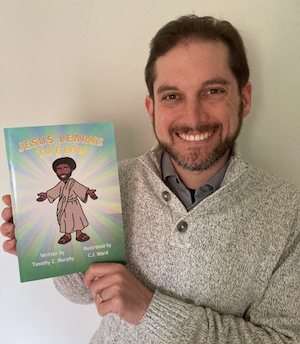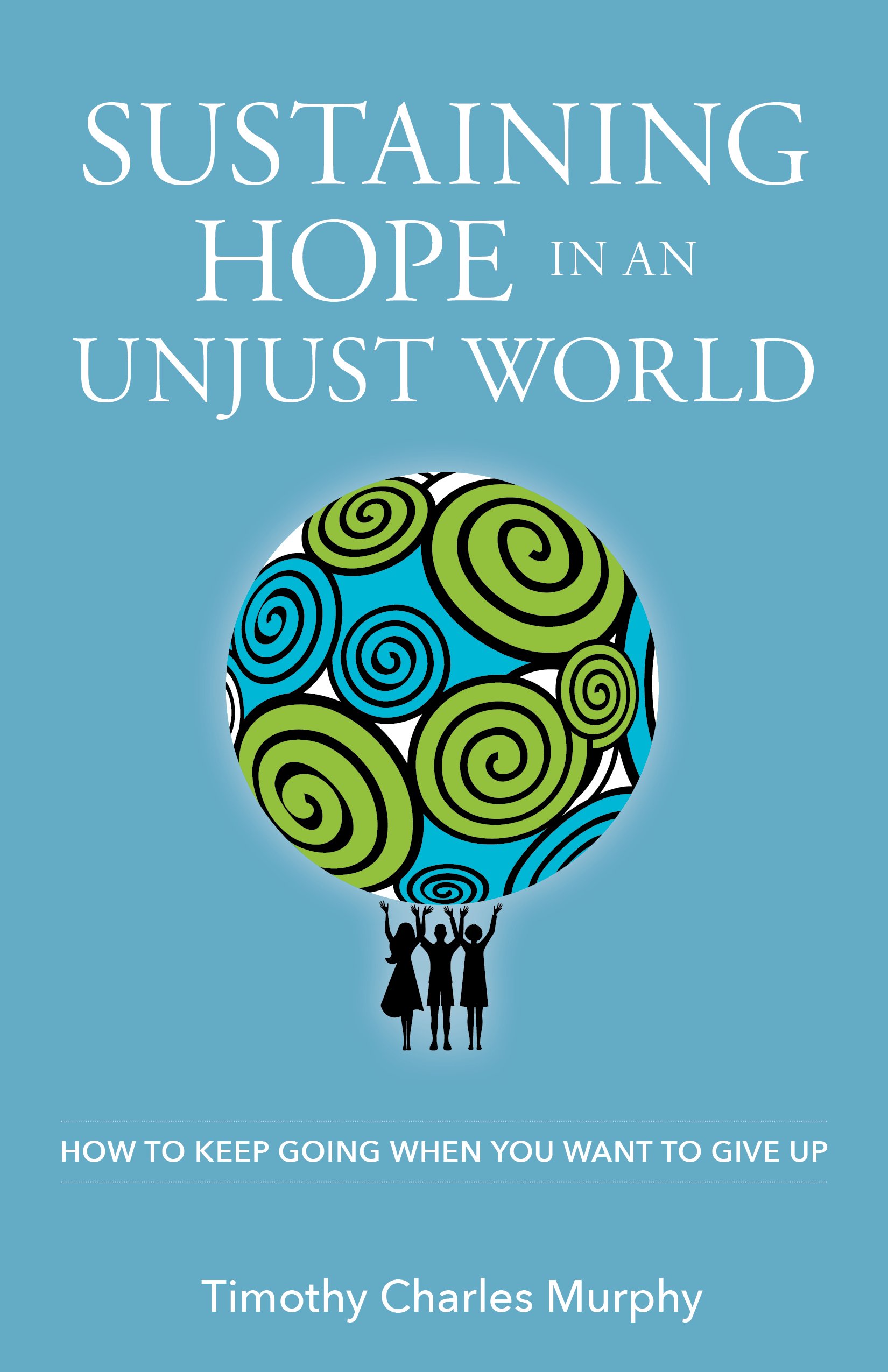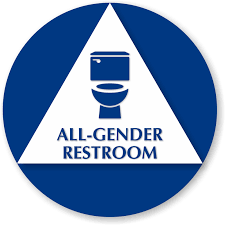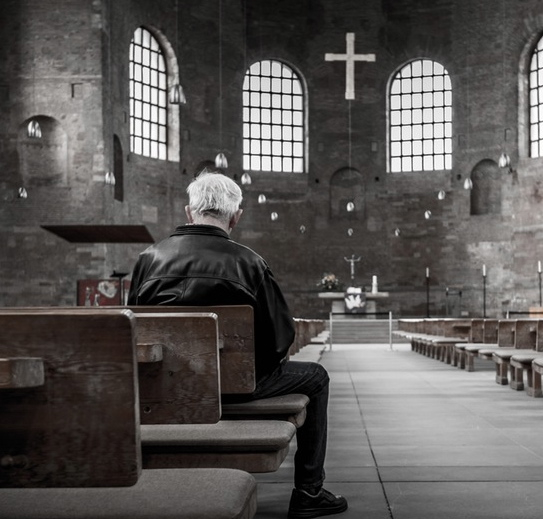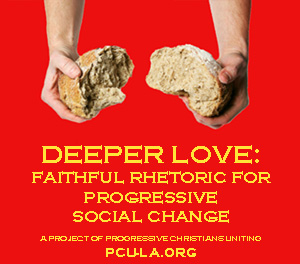This illustrated children’s book is for all those who love creatures that glow, with multiple ones encountered along the journey. Inclusive for both religious and nonreligious audiences, readers will be reinspired to let your light shine!
what happens, in our striving for social justice, when we discover that God offers us something entirely different than the promise of victory? In this love letter to the disheartened activist, pastor Timothy Murphy reflects on his own journey of disappointments and despair and rediscovers a faith - and a God - who inspires us to continue fighting, even when it feels like we're losing the battle.
"We live in an era that requires us to radicalize what ‘church’ means.” So writes Timothy Murphy, who argues that “church” should no longer be a noun, an entity, or an object, but rather an activity—what he calls churching; that is, a process of practicing discipleship with others in the way of Jesus.
Last month, PCU leadership discussed our need to respond to anti-transgender rhetoric and discrimination in our society. It's easy to condemn bigotry but harder to think of creative ways to respond. We determined that we would find a way to promote gender-inclusive bathroom signs in progressive churches. We found an organization making such signs, and they have agreed to sell them to any church who wants one at a discount of 40% from their regular price. Just go to their website, pick out the sign you want to purchase (can choose color, shape, and image) and put in the following code: PCU40. You can read more about the campaign here.
As a minister, I am disheartened by the misunderstanding and hate displayed against transgender persons in many states across our country. According to a recent report by the Human Rights Campaign, there are 44 anti-transgender bills being considered in 16 states. Within the last week, 11 states sued the Obama administration in an effort to oppose federal guidelines concerning transgender students use of restrooms and other facilities. Opponents to the equitable inclusion of transgender persons couch their arguments as simple common sense. In doing so, they reveal their dismissal of gender identity at call, by purposely misgendering trans boys and girls. For all the fear-mongering and anti-trans rhetoric that is out there regarding transgender use of public restrooms and in schools—including death threats that are being espoused by so-called “Christians”— people should take a look at how inclusive transgender laws have played out here in California.
Following the way of Jesus asks of us to support and learn from people of other faith traditions. This may sound counter-intuitive at first. At its best, the Christian tradition asks us to listen for where the Divine is speaking, in whatever surprising places we may find it. We need others as a reminder of how much greater the Divine is than any one religious tradition’s ability to fully capture it.
This coming week we have the opportunity to enact our faith with those fleeing violence and seeking sanctuary in our country. Doing so is how we can actually make Holy Week holy.
Lent has come again (quite early this year!), and we should use it to start developing some of our atrophied spiritual muscles, like practicing solidarity. At its best, Lent is an opportunity to take up a spiritual practice, as opposed to superficially avoiding sweets. Learning how to listen for the sake of building solidarity is an essential practice for progressive Christians. Doing so is necessary if we are to break out of the mold we so often find ourselves caught in when it comes to relating to the suffering of others.
As we enter the 2016 election year and primary voting gets under way in the next few weeks, it's important to consider the relationship between progressive faith and politics... The key insight of progressive faith, whether Christian or otherwise, is a healthy skepticism of any one political figure acting as a messianic savior.
You may think you are an ally, but you are wrong. You cannot be an ally. You can only act in allying ways, or you can avoid doing so. There is a big problem in progressive circles; often, you see people prioritize being seen as an ally more than acting like one. This is only possible when we misconstrue the word "ally" into an identity.
“Salvation” is often a dirty word in progressive Christian circles, but when abandoned, it leaves a void for others to fill. Instead, we need to boldly reclaim it. In American culture, its dominant usage revolves around the phrase “being saved.” Left assumed and implicit is the “from what” we are being saved: hell. Yet for those of us who dismiss a literal hell of fire and torment, we rarely replace what we are being saved from. Talking about salvation feels irrelevant if you dismiss the problem it was meant to solve and replace it with nothing.
9 times out of 10 it is not about explicit individual prejudice. It's fundamentally not about you as an individual, nor is it about feeling guilty for being "racist" as a white person. It's about principalities and powers, systems so deeply rooted in us that they shape our very way of life. And those dynamics are built to remain invisible to all those are advantaged by them. Now that's sin! But it's so hard to express this in ways white people can hear without feeling like they are under attack.
“My passion is guiding faith communities to more fully live out the mission of being witnesses to Christ’s peace with justice,” said Rev. Murphy in accepting the appointment to lead PCU. “I see the future of Christianity as modeling a spiritual social movement and see PCU’s role as supporting congregations that seek to be part of that modeling.”
Deeper Love is a web resource, updated regularly with input from its users, offering faith-based language for progressive political and social action. It provides activists, lay and clergy people, politicians, campaigners, and organizers with inspiring rhetoric to advance social change. Deeper Love is edited by Rev. Jim Burklo, Associate Dean of Religious Life, University of Southern California, with the Theological Reflection Committee of Progressive Christians Uniting. Deeper Love is a project of Progressive Christians Uniting – pcu-la.org - a social justice activist organization based in Los Angeles, California, a Partner Organization of ours.
How can I not be part of the problem: I often ask myself this question. As a white, straight, cis-gendered, male, able-bodied, economically-advantaged, mainline Protestant, American citizen, there is not a lot in terms of classic diversity that I bring to the table. This can be a challenge when one is committed to God's preferential option for those experiencing oppression. What's my role in the divine commonwealth, other than to get out of the way? Is my presence with another an act of solidarity or of benevolent paternalism?
We need to find new ways to talk about following Jesus' way. The terms of our parents and grandparents don't sing to those with ears under 40. What was at one time fresh and vital can ossify and become stale.

